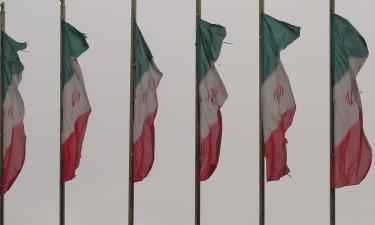U.S., Britain: Burden on Iran to prove its nuclear program is peaceful
Iran has to prove its nuclear program is for peaceful purposes _ not for developing a nuclear bomb _ U.S. and British officials said Saturday, with a deadline looming on whether to refer Iran to the U.N. Security Council.
During the only scheduled debate on Iran at the World Economic Forum, leaders painted a gloomy picture for fruitful negotiations with the country.
British officials are holding talks Monday with the deputy of Iran's top nuclear negotiator Ali Larijani ahead of a looming decision on whether to refer the country to the U.N. Security Council for breaking the seals on its nuclear facilities, Foreign Secretary Jack Straw said.
"We have to judge the right course in what is a fast-changing situation," said Straw, who added that British officials would likely make a decision Monday on whether to refer Iran to the council _ a decision the country could avoid if its only intention was to pursue enrichment for fuel. "We would much prefer to resolve this in the IAEA (International Atomic Energy Agency). That's what it's there for."
Straw was cautiously optimistic compared with the rest of the panel, which said Iran's revolutionary politics, stance against Israel, humiliation from the Shah's rule and historical conflict with the United States would be difficult to bypass.
U.S. Senator Saxby Chambliss, a Republican from Georgia, said he hoped diplomacy would work but a strong coalition would be necessary for the United States to pursue a military strike.
"We're not preparing for that right now but I think when you see the worldwide reaction to the potential for weaponization by Iran, its pretty easy to think in terms of a large coalition of folks being prepared to take whatever action is necessary," he said.
"This is not (about) firing a couple missiles into Iran and taking care of this problem. "Were talking about a major issue from a military standpoint."
His comments came as a top Iranian commander accused U.S. and British intelligence agents of fomenting unrest and threatened to respond with missiles if attacked.
Iran's improved version of the Shahab-3 missile can strike more than 1,300 miles (2,100 kilometers) from its launch site, putting Israel and U.S. forces in the Middle East in easy range.
Gen. Yahya Rahim Safavi, the chief of the Revolutionary Guards, said the United States and Britain were behind bombings Jan. 21 that killed at least nine people in the southwestern city of Ahvaz, near the southern border with Iraq where 8,500 British soldiers are based, AP reported. V.A.
Subscribe to Pravda.Ru Telegram channel, Facebook, RSS!




